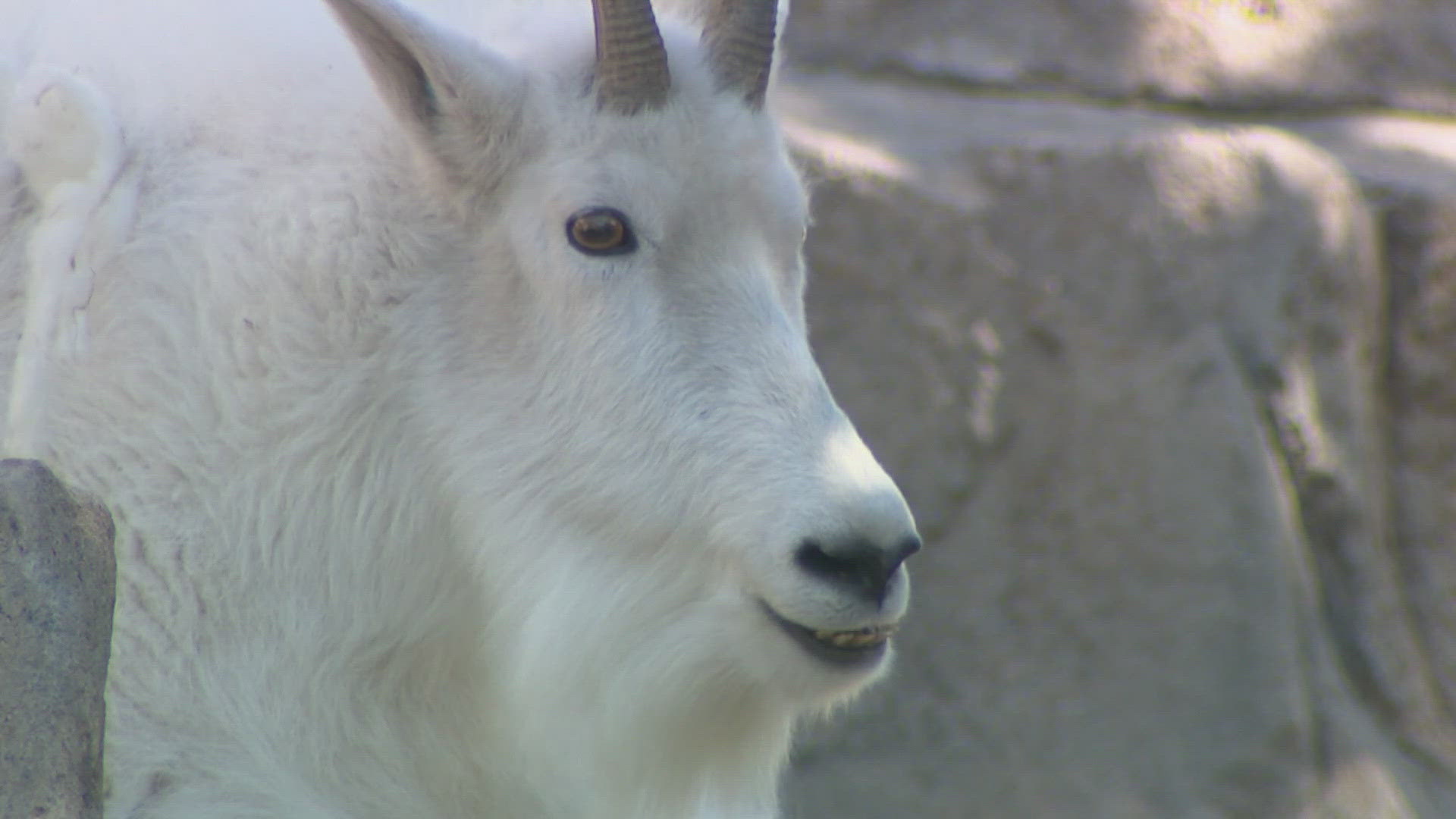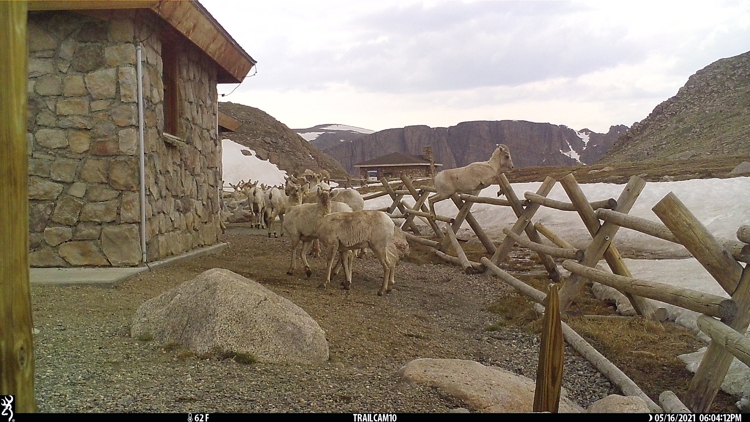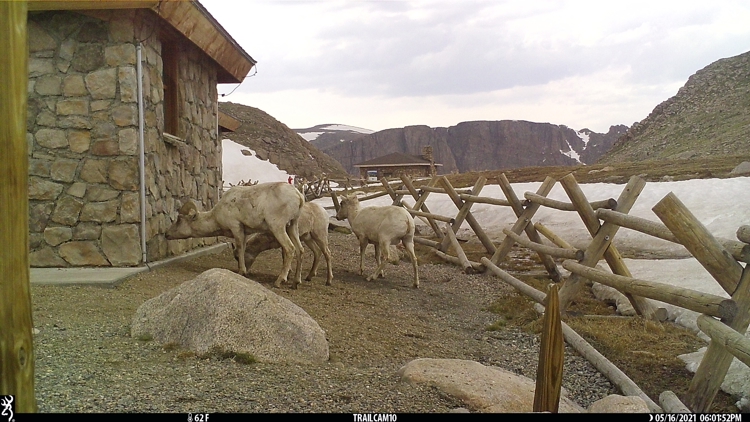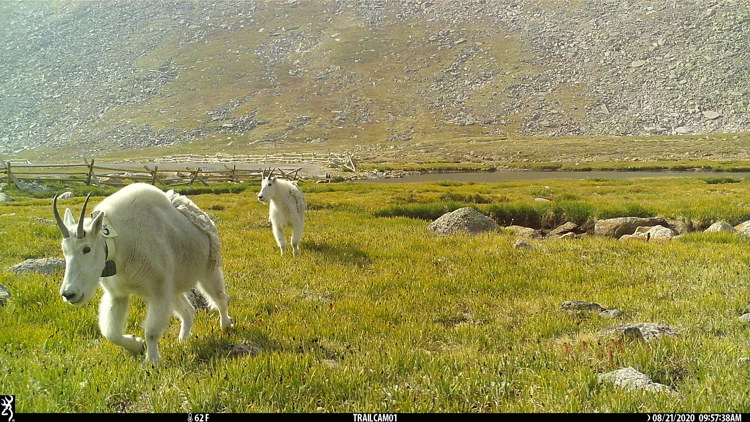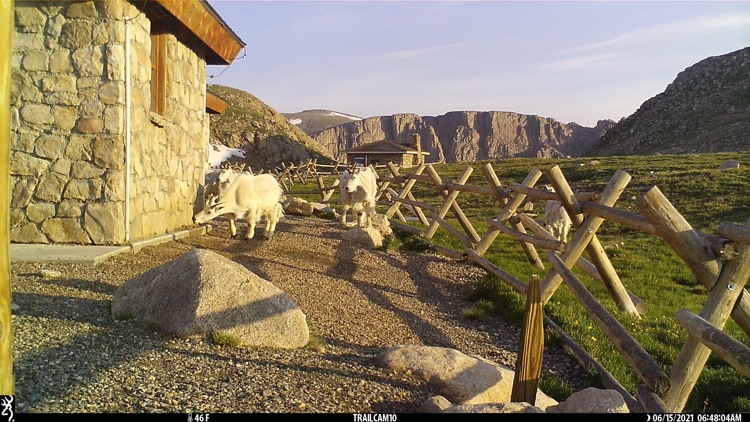CLEAR CREEK COUNTY, Colo. — When the COVID-19 pandemic shut down car traffic to Mount Blue Sky in 2020, the Denver Zoo Conservation Alliance got a rare glimpse at how wildlife interacted with their landscape free of people.
It was also a chance to test out ways to keep mountain goats and big horn sheep away from the parking lot at the top of North America's highest paved road.
"So, one of the things that we've been trying out is deploying mountain lion urine," Stefan Ekernas said.
Ekernas is the director of Colorado Conservation for the Zoo, and he said the idea with that experiment was to scare the ungulates into staying away from what would otherwise be an area full of visitors.
"It's easy to want it to be the silver bullet," he said. "I doubt it is."
The mountain opened back up to people, and people kept interacting with goats and rams.
"They'll get very, very close," Heather Valey said. "And even if you warn them, they won't listen to you."
Valey is a conservation photographer who works with the zoo to create compelling images and stories to engage the public and inspire visitors to keep their distance from these wild animals.
"I was there for two summers watching these animals," Valey said. "I kind of got to see their behavior and how they act with people and how they act with just themselves."
Goats and rams are naturally drawn to areas where people congregate because humans leave behind minerals that are hard to find in the animal's natural environment.
"They need minerals, obviously, and people are really good at bringing up minerals out there," Ekernas said.
But it is not just human-mountain goat interactions the zoo wants to reduce. Goat-ram interactions can have dire consequences, too.
"Bighorn sheep are really susceptible to pneumonia, specifically caused by a bacteria called mycoplasma," Ekernas said. "Mountain goats carry it."
The goats are by and large immune, but if even one big horn sheep gets infected, it can wipe out 90% of the herd.
"When you're putting bighorn sheep, mountain goats licking cars in the parking lot, closely bunched together, we're potentially creating a super spreader event," he said.
Now with Mount Blue Sky closed to the public for road construction until 2026, the Zoo Conservation Alliance team has more time to study novel ways to keep these animals away from each other.
Photos from trail cameras
"We have camera traps up there," he said. "We have several million photos to sort through. So, I wish we had an answer, but we don't because it takes a while to sort several million photos and analyze them."
They might not have all the answers right now, but they do know how to reduce unnecessary human-mountain goat and big horn sheep interactions in the meantime.
"It's an easy thing," Valey said. "They can learn about these animals and not get so close to them and not try to feed them and not try to take selfies with them."

